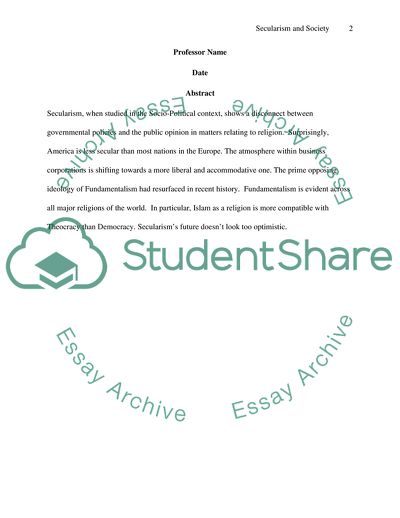Cite this document
(Secularism in Contemporary Industrial Society Coursework, n.d.)
Secularism in Contemporary Industrial Society Coursework. https://studentshare.org/politics/1703035-to-what-extent-would-you-agree-with-the-view-that-contemporary-industrial-society-is-a-secular-society
Secularism in Contemporary Industrial Society Coursework. https://studentshare.org/politics/1703035-to-what-extent-would-you-agree-with-the-view-that-contemporary-industrial-society-is-a-secular-society
(Secularism in Contemporary Industrial Society Coursework)
Secularism in Contemporary Industrial Society Coursework. https://studentshare.org/politics/1703035-to-what-extent-would-you-agree-with-the-view-that-contemporary-industrial-society-is-a-secular-society.
Secularism in Contemporary Industrial Society Coursework. https://studentshare.org/politics/1703035-to-what-extent-would-you-agree-with-the-view-that-contemporary-industrial-society-is-a-secular-society.
“Secularism in Contemporary Industrial Society Coursework”. https://studentshare.org/politics/1703035-to-what-extent-would-you-agree-with-the-view-that-contemporary-industrial-society-is-a-secular-society.


